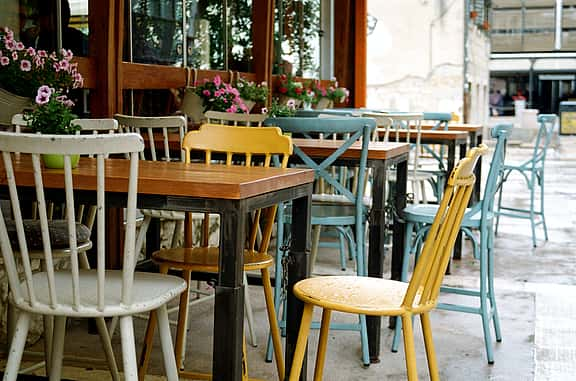You need to have maximum financial efficiency and excellent organisational skills to ensure the revenue that comes in during the busiest periods is enough to keep you afloat in quieter times. Leasing the assets you need to function effectively is one of the methods that could help you cut down on inefficiencies and keep your capital within your business.
What are the specific challenges of running a seasonal venture? How can you overcome them?
The difficulties of seasonality
The most obvious drawback of running a business that depends on seasonal trends - whether it's a hotel in a summer holiday hotspot or a clothes manufacturer specialising in coats, hats and scarves - is that the bulk of your annual revenue comes in during your busy periods.
You therefore need to ensure you're making the most of revenue opportunities during the busiest season, and that you're able to keep your accounts in the black at quieter times of the year.
On a practical level, it can be difficult to ensure you are operating at maximum efficiency and bringing in as much revenue as possible if you are heavily focused on a small time frame. If your most profitable period is just a couple of months over the summer, for example, you have limited scope for restocking or ordering in new supplies when you need them most.
This increases the likelihood that you will have to dedicate a fairly large cash outlay to acquiring the stock you need before you can make any sales. To minimise this risk, you need to be as efficient as possible when it comes to managing your cash flow and not tying up valuable capital in anything unnecessary.
Navigating the challenges
Fortunately, there are options available to help you negotiate the cash flow challenges and other hurdles that often come with running a seasonal business.
One strategy that offers some particularly valuable benefits is leasing, which allows you to acquire the assets you need to run your company on a short-term basis. This means you don't have to commit large amounts of capital to permanently purchasing items that you only really need at certain times of the year.
All sorts of assets can be leased, from essential IT hardware to office equipment. In addition to the cash flow advantages, equipment leasing ensures you are always using the most up-to-date assets, which helps to maintain the security and efficiency of your enterprise.
There are various other tactics you can use to increase your chances of success as a seasonal business, such as looking ahead and having a clear plan for managing your financial situation during the less busy times of the year.
Adam Rowse, head of business banking at Barclays, wrote in a blog for RealBusiness: "By planning ahead and revisiting your business plan regularly, it will be easier to keep on top of where your outgoings are and when you'll need cash. It's also worth speaking to your bank about cash flow options that could help you manage [the] slow season."
It can also be beneficial to think about the things you could be doing throughout the year that will deliver real benefits for your business in the long term, such as networking, planning marketing campaigns, maintaining your social media presence and overseeing the legal side of running a company.
These sorts of activities, combined with targeted financial strategies like equipment leasing, can help you position your enterprise for long-term success and profitability.
We consider a very broad range of equipment (including but not limited to): IT Hardware, Software, Copiers, Printers, Telecoms, Medical Equipment, Coffee Machines, Vending Machines, Vehicle Telemetry, Commercial Catering Equipment, White Goods, EPOS - and much, much more.
It may be possible to lease other items – simply talk to your local grenke contact.


